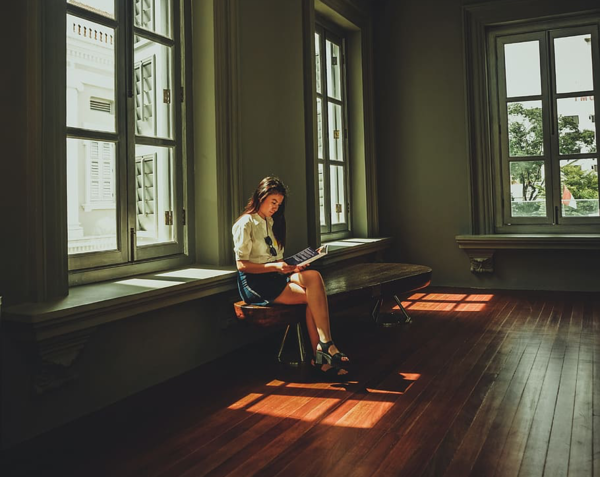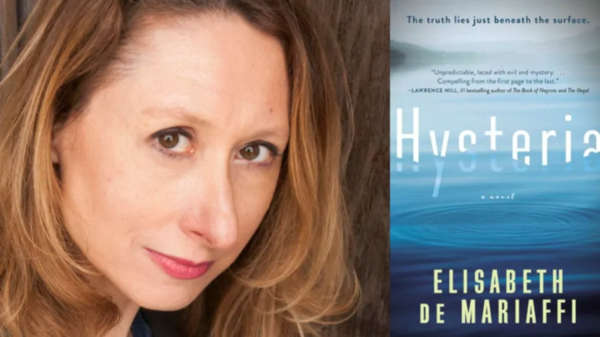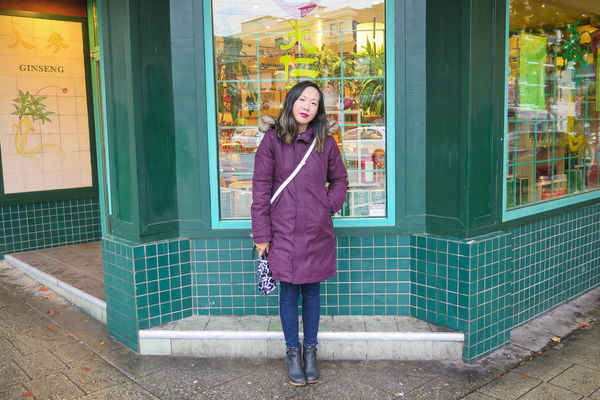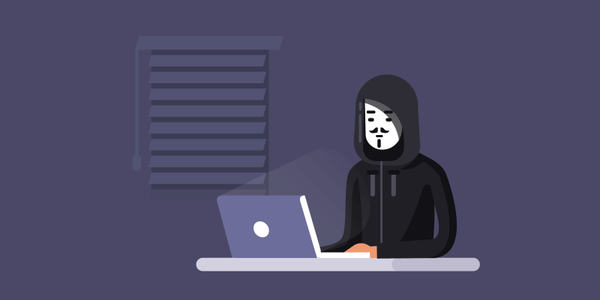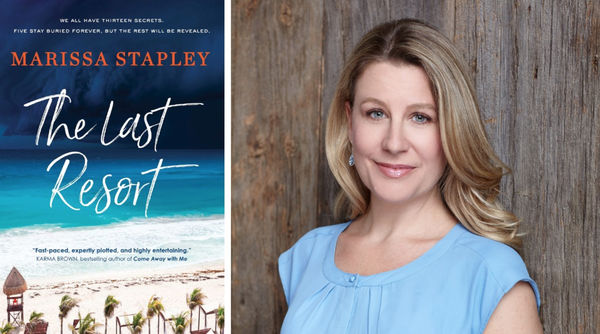Literature in Isolation
“When this is over, remember how important books and movies and television and music and public radio were to your experience and your ability to get through a really hard time.”
—Elisabeth de Mariaffi
In the second week of pandemic-mandated social isolation, a good friend of mine went into her kitchen to make a cake. This friend has two small children, a demanding day job, is currently writing her second novel, and working on edits for her first. As a result she needed to escape into “stress baking,” and collected up a few precious rationed items—butter, flour, sugar—setting to work on a recipe she’d been longing to tackle for weeks.
Not long into the baking process she discovered her oven was broken and overheating, burning said cake to a healthy char before she could rescue it from total destruction.
“I bawled for almost an hour,” she told me.
After weeks of trying to make everything work, of trying to schedule, and balance, and carve out precious time for her writing practice and pressing edits, while still caring for her children, the family’s home and financial stability, that cake was the thing that broke her, along with the oven.
“It’s not about the cake,” I told her. “It’s never about the cake.”
Like most writers I know, I too have been struggling (and crying over my version of that burnt cake) while in isolation. The necessities of childcare have drastically cut into my writing time, and put a great deal of pressure to produce on the precious work hours I do manage to fiercely protect. I have been watching contracts and prospects evaporate via economic uncertainty, while struggling to find time to complete those still available to me. We all know writing is not the most profitable vocation around, so its easy for it to find itself on the back burner when there’s more pressing economic concerns.
The circumstances of this particular isolation also makes getting words on the page extremely difficult—another writer friend of mine referred to the process as “running through mud.” Our minds are certainly elsewhere, and with good reason. Then there’s that pervasive messaging that’s been floating around about how “now is a great time to be productive,” especially when it comes to creative projects (write that novel!) Most people I’ve talked to only really feel like scrolling through the poisonous spew of their newsfeeds and distracting their creeping anxiety with Tik Tok videos. Writing may be a solitary vocation, but so much of the craft is about observing and experiencing a world we no longer are allowed to have access to, and being stuck inside doesn’t exactly free up a lot of healthy mental space for creative work.
It’s also not easy to be at peak output when you’re working from your bed (the only space available) and there’s a two year old playing “marching band” in the next room.
I spoke to a number of writers and publishing professionals via email about the personal challenges they’re facing during this time of crisis. Some are trying to finish up projects or promote recently published books, while others are simply struggling to get the day-to-day business of life and writing done. Some are adjusting to a lack of connection, while others are trying to figure out how to share their (now chaotic) work spaces with loved ones. Many of them are facing serious creative and financial upheaval, and doing their best not only to get by, but to support the wider community under extraordinarily difficult circumstances.
Your CanLit News
Subscribe to Open Book’s newsletter to get local book events, literary content, writing tips, and more in your inbox
These writers also offered up a great deal of simple and practical advice about how we, together, can support writers and publishers during this unprecedented time of uncertainty—each sharing the urgent sentiment that we need to keep buying, reading, and spreading the word about books as much as and in whatever way we can.
Elisabeth de Mariaffi, Hysteria
“For us (de Mariaffi is married to writer George Murray) the biggest change is that we are used to having our days free to work and now our days are spent valiantly trying to work while juggling various kids’ scholastic attempts. Or maybe the scholastic attempts are just our own, and the kids are hapless victims. Not sure anymore. I will say that for people who work for themselves, a schedule is really important, and keeping the kids busy is really important, so all those articles right now that say ‘don’t worry about homeschooling!’ are not particularly helpful. What I need is a downloadable curriculum with video. I’m not joking.
(W)e’ve designated a couple of rooms in the house as home offices (I’ve commandeered my daughter’s old room, as she has her own place now, while George is using our usually joint-office space), and we’re taking turns, or shifts, working and dealing with kids. We’ve got one in grade 6, one in grade 11, and one home from university, trying to finish off his second year.
We’re both working on new things right now, so in a way I guess that’s a blessing? I can’t imagine what it would be like to have just released a book, or to have a book launch coming up in the next few months. Devastating. I’m certainly watching others deal with that. Our difficulty is just getting the mental and emotional space to get some work done—and that’s not only about the general chaos of our full house, but also of course, about the stress and chaos and unknown quality of the world outside our door. It’s hard to concentrate, for everyone, isn’t it?”
Erin Wunker, Notes from a Feminist Killjoy
“My day-to-day writing has changed exponentially. I work as a teacher as well as a writer, and I am currently writing one academic monograph for a scholarly text, as well as beginning work on a collection of non-fiction. I now, with my partner, am juggling the full-time care of a very social four and a half year old, along with courses that have moved from being in person to online. This means most of my writing is emails with students, and I squeeze these into fifteen minute stretches—more if I am lucky, though that is not often the case as our kiddo is showing the strain of isolation in ways that means she is always needing us—to talk, to hold, to play.
Time and space are the specific difficulties I am facing. And, while this is not a pressing issue in the face of what we are all dealing with, it is an issue in terms of creative and cultural production as well as how we writers are able to reflect, record, and write about the now.
Where I am able I am buying books from small presses, donating money, and amplifying the work of others. Readers are key in this work of staying connected. Simply posting about someone’s writing makes an affective difference.”
Jen Sookfong Lee, The Conjoined
“I am now forced to work around my son’s schedule, which means whenever he is watching a movie or playing video games. This makes me feel like a terrible mother! It also means I don’t write for a sustained amount of time, say, three or four hours. It’s a hour or half hour here and there…I am also finding it difficult to focus, given that I think we all feel compelled to watch the news so closely.
I would ask (readers) to resist the urge to read pirated material, which, as always, means authors don’t receive royalties, and our livelihoods are also in jeopardy right now, given all the cancellations of literary events and book tours. And if you like something, shout it out on social media!”
Hazel Millar, Co-Publisher, Book*hug Press
“None of this is normal and yet we're doing our best to proceed with everything and are trying hard to keep all the balls in the air. Our hearts hurt for our spring authors whose books are publishing into a very changed landscape. At the exact same time, production for our fall season is well underway and so our attention has had to shift to that. It's all very overwhelming. Nevertheless, we're working hard to try to mitigate all of this as much as we can but everything feels so uncertain.
Sales are a big worry across the publishing industry. Sales are definitely down. We're very worried about sales of our new spring titles. Marketing and promoting spring titles is also a challenge right now. Like publishers everywhere, we're very quickly re-imagining new and innovative ways of marketing and promoting titles in the digital landscape and doing all we can to amplify our spring authors and their new books. The challenge of course is that the digital landscape is jam packed, especially now, and so discoverability remains an ongoing challenge.
I know that everyone is struggling right now and many people are worried about how they are going to be able to pay the rent or mortgage and bills, put food on the table, etc, but if readers are able to help then we encourage them to support authors by purchasing their books from independent booksellers.”
Book*hug Press is currently offering all available e-books for only $5.00, with 100% of each sale going directly to the author.
Anonymous, Writer and Editor
“My own day-to-day writing process has completed halted. I'm not able to write at the moment. As for editing, my tasks remain the same, while my cognition and focus are reduced, making my daily tasks feel more challenging. In some ways, the press is busier right now, because we've needed to pivot to promoting books online in ways that we weren't doing nearly as robustly before, so that's involved learning new skills and it's put new time pressures on our workloads.
I'm lucky in that most of what I'm facing is sort of emotional and speculative. So: I can't focus, I feel depressed, and I'm worried that I will eventually be laid off.
Readers can order and pre-order books directly from publishers, or from small bookstores, if they're in a position to; they can take the books out as e-books from the library; they can talk about the books online with friends and on social media. If readers are in a position to buy, online, the books they would have purchased at readings and launches, that would go a long way to helping.”
Chelene Knight, Dear Current Occupant, founder LearnWritingEssentials
“I have been working on ways to help authors ‘get excited about their books again,' since a lot of the fun of touring has been put on hold. I've been having a lot of one-on-one meetings with other authors, just to start dream-building again. Sometimes all it takes is to hear another person talk about the hopes for their book to remind all of us why we write, and how much books can impact us.
I am personally feeling the heartache that comes with not being able to speak to writers in person. One of my favourite things is to attend book launches, buy books, and get them signed, and of course share space with other folks from the literary community.
Through my author care consultancy, Breathing Space Creative, I do feel the weight of not having all the answers. I want to help folks (especially emerging authors) but because we've all had to figure out how to move, pivot, and react day by day, it's been really tough finding solutions. But you can really see the strength of the CanLit community.”
Bryan Ibeas, Editor, Invisible Publishing
“Readers with the means (should) continue to buy books. Lots of them. And buy them from your local, if you can. I know most of them are providing safe ways to get you your books. We need to make sure the stores are here when all this is over, because they’re such a pivotal part of the ecosystem that writers rely on. Support the stores and you support writers too.”
Marissa Stapley, The Last Resort
“It’s been almost a month and I still haven’t quite figured out how to get to that place of true concentration on my writing yet. I often feel I’ve lost my connection to the world I’m trying to build because my own world has become so fraught. My concentration is now pulled in many directions: the needs of my kids, the needs of my family, the needs of the world. I have a feeling that by the time I figure out how to concentrate on my work, this will all be over and I’ll be feeling the need to learn new habits all over again.
Being a writer also means I chase worst-case scenarios down and make up stories about them in my head. So sometimes when I’m writing—or, working through the edits for my fourth novel, which is what I’m doing now—an internal voice will start whispering all the things that could happen, all the things that could make my work meaningless and unwanted. I have to work hard to silence that voice and often by the time I do, the day is almost over.
The uncertainty is difficult. Pressing forward with your projects, hoping publishers will still be able to buy books, and readers will still want to read them, or be able to afford to buy them. Making a living in publishing is hard on a good day, and there have been some tough days. Basically, an uncertain profession has just become more uncertain. And there are days when keeping the faith is a real struggle. Those are the days I’m grateful I have writer friends to talk to.
I think we’re all craving a connection to readers right now. I know I always loved to hear from readers that they enjoyed one of my novels; now it seems to mean so much more. So even just a positive tweet or message is likely to brighten an author’s world.”
Some of the above answers have been edited for length.
Stacey May Fowles is an award-winning journalist, novelist, and essayist whose bylines include The Globe and Mail, The National Post, BuzzFeed, Elle, Toronto Life, The Walrus, Vice, Hazlitt, Quill and Quire, and others. She is the author of the bestselling non-fiction collection Baseball Life Advice (McClelland and Stewart), and the co-editor of the recent anthology Whatever Gets You Through (Greystone).
